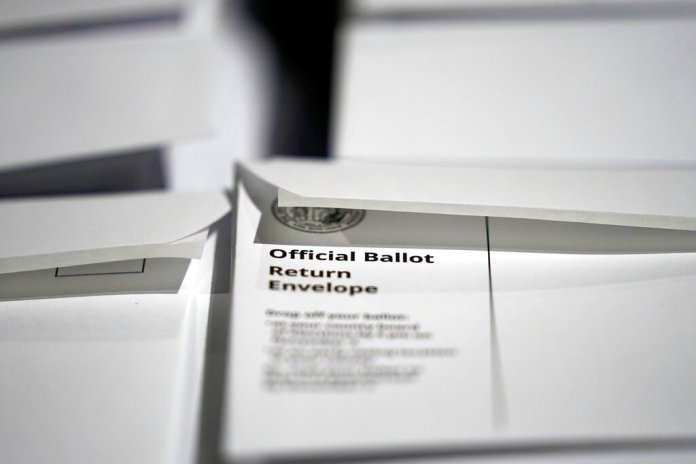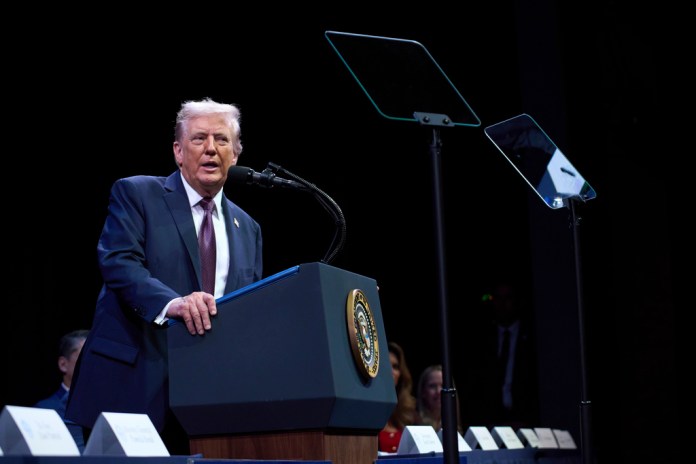Five Ways To Start Fixing The UOCAVA Voting Mess
This article discusses concerns regarding the Uniformed and Overseas Citizens Absentee Voting Act (UOCAVA) in the context of upcoming Republican victories in elections. While there might potentially be a tendency for some conservatives too become complacent about election integrity, the article warns against this, particularly regarding overseas voting. UOCAVA has critically important flaws, particularly in verifying the identity and eligibility of voters.
The Democratic National Committee (DNC) has taken an interest in UOCAVA, recently announcing efforts to register up to 9 million voters, despite federal acknowledgment that only 2.8 million are eligible. Originally meant for military personnel abroad, UOCAVA now predominantly serves civilians, who in 2020 submitted a majority of ballots under this act, particularly in swing states like Michigan where nearly 83% of UOCAVA voters were nonmilitary in recent elections.
The article raises alarms about the lack of requirements for voters to demonstrate a connection to their home state when registering, and the risk of overseas civilian voters remaining registered even after returning home. The Federal Voting Assistance Program advises these voters to update their information annually, but it is unclear what happens if they fail to do so, perhaps allowing ballots to be sent to outdated addresses.
The article concludes by mentioning the existence of solutions proposed by election integrity organizations to address these challenges.
Republican victories in November could easily lead some on the right to become complacent when it comes to fighting for integrity in our elections, but that would be a huge mistake, especially when it comes to overseas voting. UOCAVA, short for the Uniformed and Overseas Citizens Absentee Voting Act, has numerous problems, including a poor track record for verifying the identity and eligibility of the voters it admits to the system.
This observation might help to explain in part why the Democrat Party has recently taken a particular interest in UOCAVA voting. In August, the DNC announced that it would begin attempting to register up to 9 million voters through the system, despite the federal government’s own acknowledgment that only 2.8 million eligible voters are actually overseas.
The situation becomes even more puzzling in light of the fact that UOCAVA, which was originally intended to serve only active military and federal personnel stationed overseas, is now serving mostly nonmilitary citizens — those who are overseas of their own accord rather than those who are committed to serving our nation abroad.
In 2020, civilians eclipsed military voters, submitting 63 percent of all UOCAVA votes. However, this number doesn’t tell the full story. In swing state Michigan, nonmilitary voters made up an overwhelming 83.3 percent and 81 percent of all UOCAVA voters in that state for 2022 and 2024, respectively.
This number, and similar statistics reported from other states with similarly troubled election integrity backgrounds, should be somewhat disconcerting. Nothing in the current UOCAVA application requires the overseas voter to have previously resided or currently own a home in the state he is attempting to register to vote in — an interesting fact to consider in light of the statement of former Obama operative Susan Rice that swing states such as Michigan were important targets for already questionable Democrat overseas voter turnout efforts.
Even more concerning, though, is the possibility that overseas civilian voters could stay on the overseas voter rolls even after they are no longer abroad. The Federal Voting Assistance Program “recommends” UOCAVA voters send in a new Federal Post Card Application (FCPA) every year, leaving open the question: What happens to those voters’ UOCAVA designations if they stop sending annual updates? Do ballots keep getting mailed to insecure addresses in foreign countries?
There are, however, solutions to these issues. Election integrity groups such as the Michigan Fair Elections Institute, the Election Integrity Network, and Verity Vote have brought substantive recommendations to the table, which GOP leadership has signaled it wishes to bring to bear in January legislative sessions.
Top priorities for any truly significant reform should include:
- Requiring civilian voters to send a photocopy of their passports or similar acceptable ID along with their hand-signed mail-in ballot.
- Reforming the UOCAVA application (FPCA) to require identity and citizenship verification.
- Banning electronic voting for overseas civilians.
- Separating and distinguishing the voting processes for service members and civilians overseas.
- Removing any option to automatically register and receive ballots for future elections.
Implementing these reforms, it can be surmised, will lead to several key benefits — requiring suitable ID from civilian voters, such as a photocopy of a passport, will undoubtedly deter illegitimate UOCAVA registrants and would-be fraudsters.
Requiring proof of identity and citizenship of UOCAVA civilian voters will be an important step toward ensuring there are no foreign or ineligible voters taking advantage of our electoral systems for partisan or political gain.
Banning electronic voting as an option for overseas civilians will also go a long way toward ensuring the validity of each vote that is received and tallied, as it will remove the numerous opportunities for fraud that simply do not exist with hand-signed mail-in paper ballots.
Separating the voting processes for military and civilian voters will also improve the overall UOCAVA process. This will also allow for proper and objective verifications to be placed on each nonmilitary overseas voter who hasn’t gone through the service member vetting process.
Finally, ensuring that UOCAVA voters do not automatically receive future ballots will reduce the potential for ballots to fall into foreign hands, alleviating the appearance of impropriety that such a possible scenario brings and reassuring legitimate citizens that their votes aren’t being diluted by illegitimate ballots potentially submitted by foreign entities.
At the end of the day, more and more elections in our country are being decided by close margins. Ensuring that all — and only all — eligible votes are counted is therefore of vital importance to ensuring the continuance of our republic.
The Public Interest Legal Foundation maintains a database that tracks the number of recent elections ending in either tied votes (currently 646) or with a one-vote margin of victory (179.) These numbers are sure to continue to increase as time marches on — but even if we lay them aside, there’s still a more important point to be made: Every illegitimate or fraudulent vote that enters our election system constitutes a robbery of a degree of the American citizenry’s right to determine its leadership and its future.
Nothing should dissuade us from ensuring that fairness and honesty prevail in our elections. Nothing less will preserve our nation and our freedoms.
Frederick Woodward serves as director of research and investigations for Politylitics, a legal analyst at the Michigan Fair Elections Institute, and a fellow at the Albertus Magnus Institute. His writing has previously been featured in The Daily Signal, The Lamp magazine, Catholic Insight, New Guard Press, and The Latin Mass Magazine. He is a member of The Federalist Society and the Thomas More Society and is a lover of all things Chesterton.
" Conservative News Daily does not always share or support the views and opinions expressed here; they are just those of the writer."




